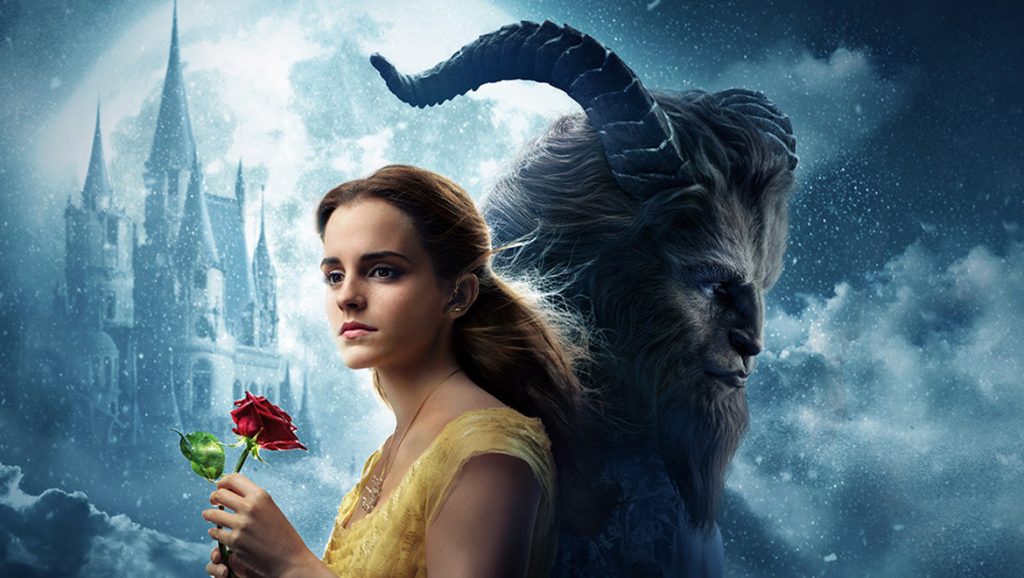by Kristin Fontaine
I went to a matinee of Beauty and the Beast (2017) with my mom this week. I had some problems with the movie, but one of the things I liked was that they kept the core of the fairy tale– that Beauty (Belle) can not love the Beast until he sets her free.
In this edition, Belle makes it explicit. When the Beast asks if she could have feelings for him she replies that as a captive she cannot love. By this point in the movie, it is clear that both enjoy each other’s company but the Beast’s question about her feelings gives Belle the opportunity to remind the Beast that even though she has the appearance of freedom within the castle, she is not free.
It is clearly a surprise to the Beast. Dan Stevens, who plays the Beast in this version of the story, does a great job of letting the audience see the moment of realization on the Beast’s part that he loves Belle as he sets her free. He does not say he loves her and he puts no pressure on her to return. As with other re-tellings of Beauty and the Beast, he is sure in his own heart that he has signed his own permanent doom by letting Belle go.
As we were leaving the theater, mom asked me what my favorite and least favorite parts of the film were. After talking about my least favorite part (and the part that will make this movie unwatchable for me in the future) I told her that my favorite part was that the filmmakers had done a good job of showing how important it was that the Beast freed Belle and how clearly Belle sets the boundary of captor and captive to remind the Beast that even though she is compliant in her role, and may give the appearance of having freedom to choose, she is not free.
For the love between Beauty and the Beast to work Belle not only must be free, but the Beast must believe that he has lost her by freeing her. That rather than forcing her to stay and hoping she might change her mind and save him with her love, he must let go of any possibility of her feeling grateful, or ‘loving’ him out of a sense of obligation because he freed her when he did not have too.
After mom and I got home, she posted a note about having seen the movie and wrote: “God is the beast who lets us go so we can freely love God.”
This struck a chord with me, in part because my belief in free will is central to my Chistian faith. If we cannot choose, then we are puppets. If we have no free will then we are not free to love.
If God is “the Almighty, maker of heaven and earth, of all that is, seen and unseen” as we say in the Nicene Creed then God had the option of making us, his creation, adhere to his will throughout eternity. Instead, God continually calls us into relationship. In the Old Testament God seemed to alternate between offering love and support and punishing our waywardness. However whether rewarding or punishing he never removed the will of the the people to turn away from God. To do that would be to deny forever the possibility that we might choose God and choose love.
Love can only exist where there is freedom to choose and it cannot be a false choice where we return to God out of a sense of duty or obligation. Jesus died on the cross as Beast dies in Belle’s arms– certain that he has made the right choice as he steps into the unknown.
The moments in the story of Beauty and the Beast when the Beast is dead and Belle weeps over his body, and the days after the death and before the resurrection– these are all moments of suspense where the sacrifice has been made with no strings attached. The Beast sacrifices his hope of restoration and love; Jesus gives himself up to death to save us all with no expectation that we will love him for it.
Both understand that love cannot be bought by sacrificing the life or freedom of other people. Love cannot be bought at all, but it can be freed to flourish wild in the world.
The Beast learns to love through sacrifice. That is the heart of the story.
Kristin Fontaine is an itinerant Episcopalian, crafter, hobbyist, and unstoppable organizer of everything. Advent is her favorite season, but she thinks about the meaning of life and her relationship to God year-round. It all spills out in the essays she writes. She and her husband own Dailey Data Group, a statistical consulting company.
Image: Geek Culture

